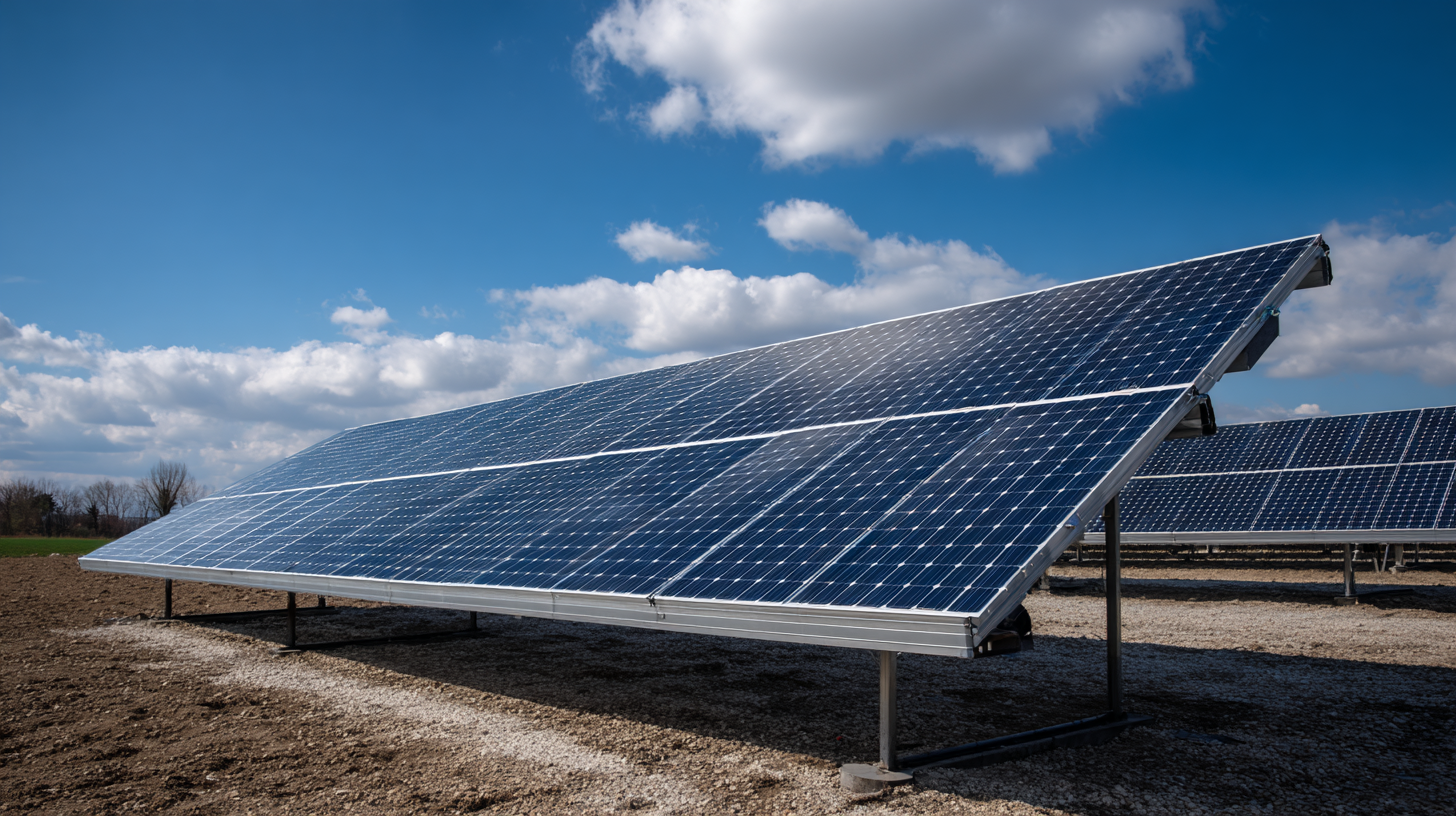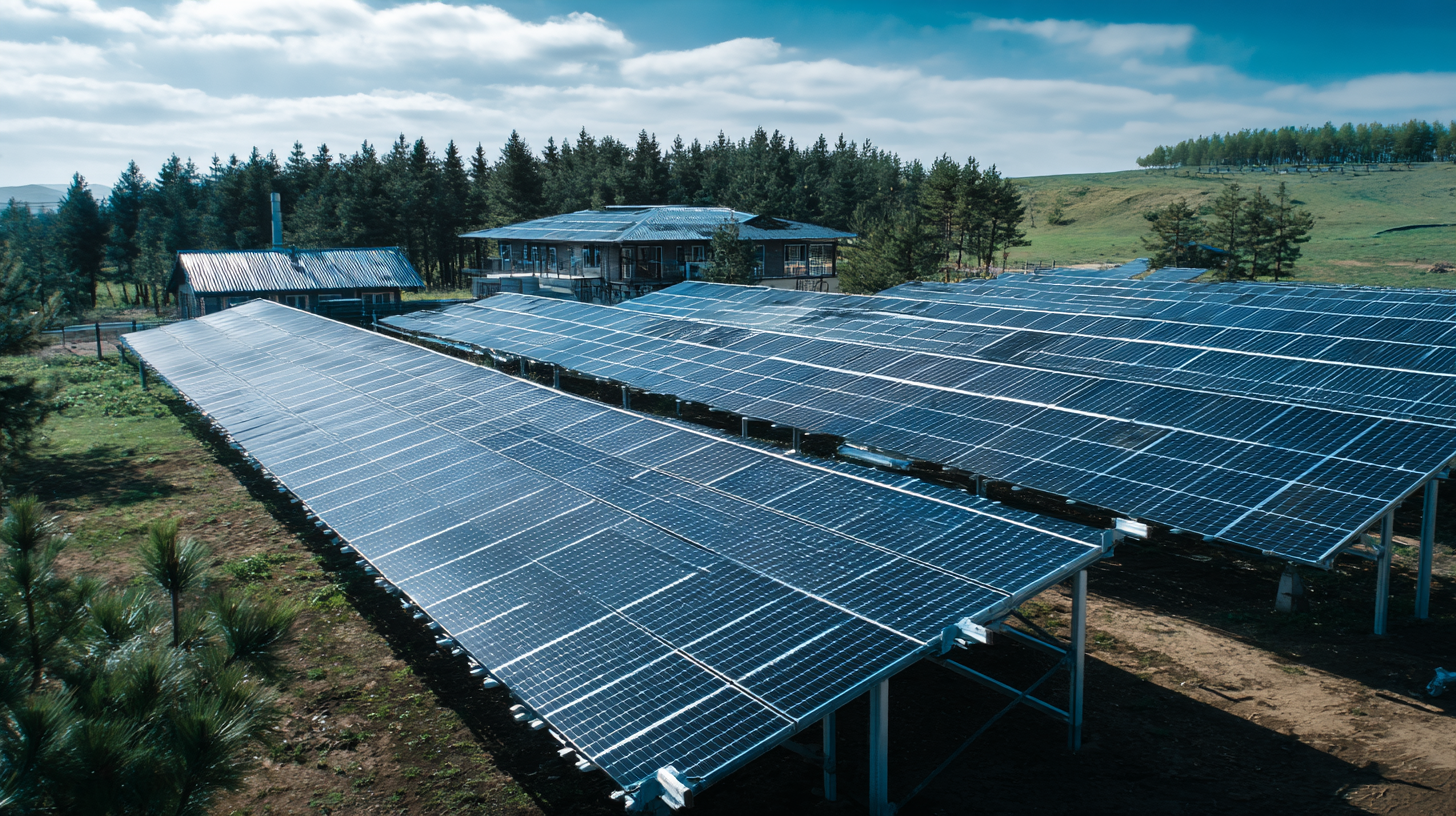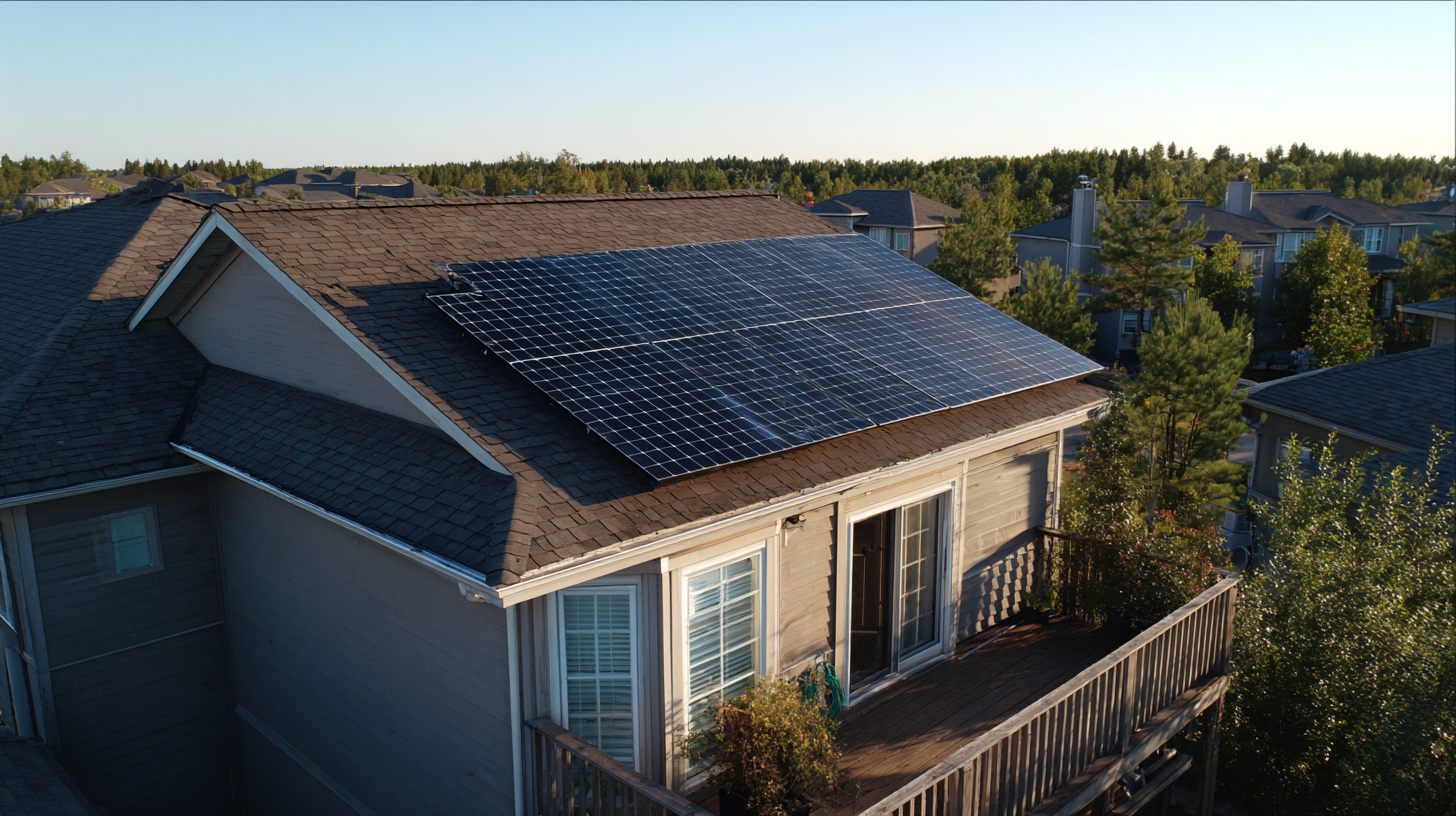As the world increasingly shifts towards sustainable energy solutions, the solar installation market is witnessing unprecedented growth. According to a recent report by the International Renewable Energy Agency (IRENA), global solar power capacity reached over 850 gigawatts in 2021, illustrating a 20% increase from the previous year. This surge is driven by advancements in technology and a growing demand for clean energy, particularly in developing markets. China's role in this transformation is paramount, as the country not only leads in solar panel manufacturing but also prioritizes the expansion of premium solar installations. By adopting advanced digital technologies and innovative practices, China is setting new global standards in solar energy, making it an essential player in achieving climate targets and promoting sustainable development. This blog will explore the implications of these advancements and provide valuable tips for navigating the landscape of solar installations.

 In recent years, China has emerged as a global leader in solar technology, consistently pushing the boundaries of innovation to produce premium solar installations that elevate industry standards. The driving force behind this transformation lies in advanced manufacturing techniques and cutting-edge research. From high-efficiency photovoltaic cells to smart grid integration, Chinese solar installations exemplify how technology can harness energy sustainably and efficiently.
In recent years, China has emerged as a global leader in solar technology, consistently pushing the boundaries of innovation to produce premium solar installations that elevate industry standards. The driving force behind this transformation lies in advanced manufacturing techniques and cutting-edge research. From high-efficiency photovoltaic cells to smart grid integration, Chinese solar installations exemplify how technology can harness energy sustainably and efficiently.
To maximize the benefits of utilizing Chinese solar technology, it's essential to choose reliable installers who are well-versed in the latest advancements. Tip: Always look for certifications and industry endorsements that reflect the quality and safety of the equipment. Additionally, understanding the warranties and service options available for solar products can ensure peace of mind for long-term investments.
Another significant aspect is the integration of smart technology in solar installations. Tip: Consider options that include monitoring systems, which allow users to track their energy production and consumption in real-time. This capability not only enhances energy efficiency but also empowers homeowners and businesses to make informed decisions about their energy usage, optimizing their savings and environmental impact.
As the world grapples with escalating environmental issues and energy demands, solar energy emerges as a powerful solution. The ongoing exploration of integrating solar technology with architectural design highlights its role as the cleanest and most abundant energy source available today. China's proactive approach can position it at the forefront of this "green revolution," potentially mitigating the deteriorating circumstances surrounding energy and environmental challenges.
Recent events, like the International Solar Utilization Conference in Jinan, underscore the urgency of advancing photovoltaic solutions. As industry leaders present innovative strategies, the emphasis on sustainability and efficiency becomes paramount. With premium solar installations, we are not just enhancing energy production; we are reshaping our environmental footprint for future generations. The intersection of renewable energy and cutting-edge technology is paving the way for a more sustainable world, as stakeholders collaborate to harness solar energy's vast potential for both economic growth and ecological preservation.

In 2023, China firmly established itself as a global leader in renewable energy by installing a staggering 217 gigawatts (GW) of solar power—surpassing the total combined installations of the rest of the world. This remarkable achievement marks a significant step in the global energy transition, showcasing China's commitment to sustainable development and its capability to meet ambitious renewable energy targets. According to the International Energy Agency's (IEA) 2024 report, China's solar energy evolution is pivotal in shaping a greener energy landscape, as the nation continues to enhance its infrastructure and technological advancements in solar panel production.
The landscape of solar energy in China is transforming not just within its borders but also on a global scale. Solar farms, such as those in Guizhou province, transform vast areas into renewable energy powerhouses, embodying the country’s ambitious push towards green energy. With China's total renewable energy capacity skyrocketing to 1,482 GW by March, wind and solar have now surpassed traditional fossil fuel capacities, marking a pivotal shift in energy generation dynamics. This momentum is critical as the world seeks sustainable solutions to combat climate change, highlighting how Chinese solar installations are not just elevating local standards but also setting a global benchmark for renewable energy excellence.
The quality of solar products is becoming an increasingly pressing issue as low-quality imports flood markets worldwide. Reports indicate that the Pakistan Solar Association has raised alarms over the increasing influx of B-grade solar panels, which compromise efficiency and reliability. In response, the Indian government has tightened quality norms by introducing new standards for solar photovoltaic (PV) modules, inverters, and batteries, ensuring only products that meet high-quality benchmarks can enter the market.
Chinese manufacturers, known for their competitive pricing and large-scale production, are now at a crossroads. The question remains whether they can enhance quality without sacrificing their price advantage. Recent insights indicate that the Chinese solar industry has begun collaborating to stop a destructive price war, signaling a shift towards prioritizing quality alongside affordability.
**Tips for Ensuring Quality in Solar Investments:**
1. Verify certifications: Ensure that the solar panels you purchase meet international standards, such as those provided by recognized testing organizations.
2. Research manufacturers: Look for brands that are transparent about their quality assurance processes and have positive reviews from industry experts.
3. Stay informed: Keep up with the latest developments in solar regulations and standards, as compliance can significantly influence product performance and longevity.
| Dimension | Standard Value | Comment |
|---|---|---|
| Efficiency | 18-22% | High efficiency compared to global averages. |
| Warranty Period | 25 years | Long-lasting assurance of product quality. |
| Temperature Coefficient | -0.34%/°C | Performance in high temperatures. |
| Certification Standards | IEC 61215, IEC 61730 | International standards for solar panels. |
| Degradation Rate | < 0.5% per year | Minimal performance loss over time. |
The global solar market is set to expand significantly, with forecasts indicating a growth from $25.69 billion in 2023 to $436.36 billion by 2032. This impressive compound annual growth rate of 6% reflects the increasing reliance on renewable energy solutions, particularly solar technology. As we look toward the future, Chinese solar technology plays a pivotal role in meeting global renewable energy goals, helping to drive innovation and efficiency in solar installations.
As the demand for solar trackers skyrockets—projected to rise from $7.88 billion in 2023 to $25.24 billion by 2032—investors and businesses must stay informed about the latest trends and technologies in the industry. Tip: Keep an eye on advancements in solar tracking technology, as they can significantly enhance energy capture and efficiency, driving down costs and increasing profitability.
Moreover, as the energy market adapts to the complexities of climate change and geopolitical shifts, the transition to renewable energy becomes critical. Tip: Engage in continuous education about renewable energy policies and practices. This will not only equip you to make informed decisions but also empower you to advocate for sustainable energy solutions in your community, fostering a greener future for all.
As electricity costs continue rising, many small households in Maharashtra seek sustainabl...Read More
Uttar Pradesh is making significant progress in adopting renewable energy, particularly so...Read More
With the Indian government actively promoting renewable energy through subsidies and polic...Read More
Tired of watching your electricity bills climb month after month and strain your pockets? ...Read More
Switching to solar energy in Gujarat has never been more profitable! With plenty of sunlig...Read More
If you live in Madhya Pradesh and want to save money on power while living a greener lifes...Read More
If you’re a resident of Bangalore looking to save on your skyrocketing electricity b...Read More
If you live in Karnataka and have been looking for an environmentally friendly, cost-effec...Read More
Delhi is a city that thrives on its vibrant energy, and what better way to complement that...Read More
As electricity costs continue rising, many small households in Maharashtra seek ...Read More
Uttar Pradesh is making significant progress in adopting renewable energy, parti...Read More
With the Indian government actively promoting renewable energy through subsidies...Read More